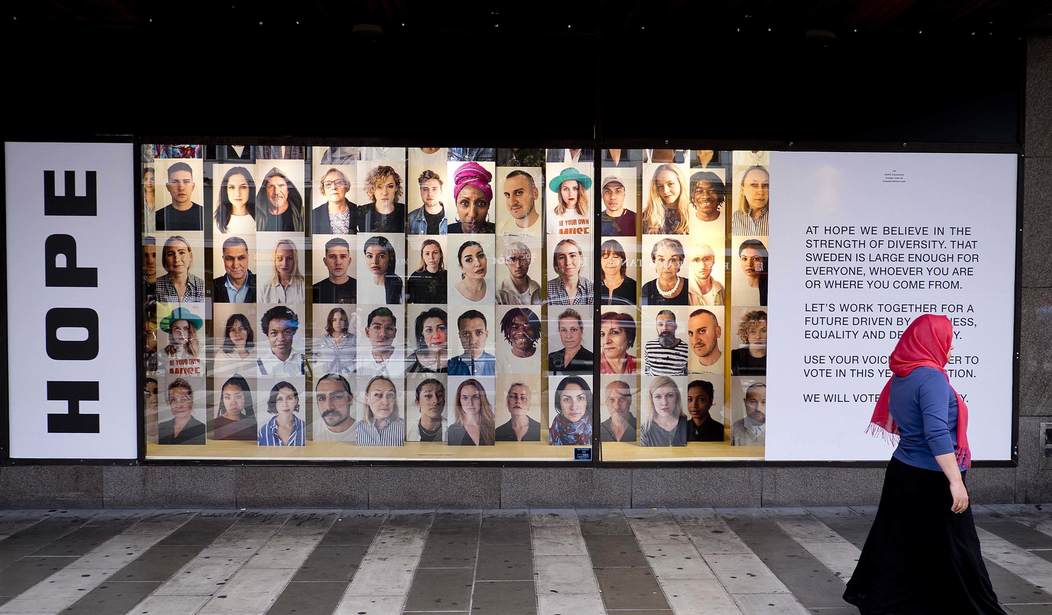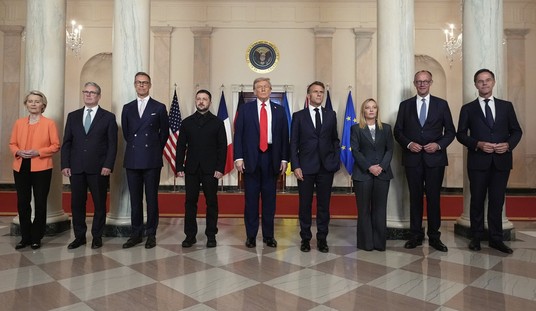Has corporate DEI peaked or are we just seeing a lull at the moment? The answer to that depends on who you ask. Yesterday the Congressional Black Caucus released a report on DEI initiatives at Fortune 500 companies.
The report released Monday offers guidelines to corporations on the best practices to adopt to advance diversity, equity and inclusion policies in the workplace and calls on companies to recommit to advance racial justice in the workplace...
“In the wake of the death of George Floyd, corporations pledged $50 billion to racial equity and strengthening DEI policies,” said Rep. Steven Horsford, D-Nev., chair of the Congressional Black Caucus, in an interview. “DEI is now under attack, but the response from corporate America has been overwhelming.”
The report was based on a survey the CBC carried out but it's fair to say this wasn't a professional poll so much as a partisan push poll. The CBC knew what answer it wanted before it started and it made that clear to these corporations in a letter it issued last December. [emphasis added]
The Congressional Black Caucus is calling on Corporate America to join us in the necessary work to create a more racially inclusive economy. We are asking corporate organizations to reaffirm their commitments to diversity, equity, and inclusion, update us on their racial equity investments, and work with the Congressional Black Caucus to create legislative solutions that will help close the racial wealth gap.
So imagine you're running a major corporation and the Congressional Black Caucus sends you a questionnaire about your DEI progress. It's very clear there is a right answer. What do you do. In fact, most companies simply didn't respond. The CBC included this in its report as the "INAUGURAL CORPORATE ACCOUNTABILITY SCORECARD."
In this inaugural edition of the CBC’s Corporate Accountability Scorecard, we have scored industries based on the good faith participation of the Fortune 500 companies that responded to our January 2024 follow-up letter. Of the 189 companies that responded to our outreach, 139 are from the Fortune 500, representing a 27.8% participation rate among Fortune 500 companies in this first-time effort.
Frankly, it's a little creepy to have members of congress pressuring companies in this way. If 72% of Fortune 500 companies didn't respond that suggests, to me anyway, that they weren't eager to reaffirm their commitments to DEI. Maybe the CBC should take a hint from all of that silence?
Today, Bloomberg calls the current wave of pullback from corporate DEI the "Great Quieting."
Big US companies such as Ford Motor Co., Lowe’s Cos., Harley-Davidson Inc., and Molson Coors Beverage Co. have announced they are backing away from many of the diversity programs they added over the past several years. The list also includes Tractor Supply Co., Deere & Co. and Jack Daniel’s distiller Brown-Forman Corp...
So what does the Great Quieting mean for the future of the workplace and workers? We might hear less about Pride parades, or Black Lives Matters. Talk of unconscious bias will be consciously absent. Some companies have already ended their diversity training programs. Employers will still try to recruit and retain the right mix of talents who reflect what’s happening demographically in society — but do it more quietly.
The problem at these companies isn't fear of bad press, it's fear of lawsuits. NPR interviewed David Glasgow, the executive director of the Meltzer Center for Diversity, Inclusion and Belonging at the NYU School of Law who admitted as much a few days ago. [emphasis added]
I kind of think that for a long time, proponents of DEI have just kind of assumed that the words diversity, equity and inclusion sort of sound good and friendly and warm, and so, you know, people are just going to support them. And I think now we're in a moment where we kind of need to get back on the front foot and make an affirmative case for it.
You know, but the other thing that, you know, it has caused me to reflect on is really the legal landscape because, you know, I work in a research center at a law school, and a lot of the backlash is coming from, really, the legal environment that we're in subsequent to the Supreme Court's decision in the Students for Fair Admissions, you know, affirmative action case last year, and so, you know, we are doing a lot of work thinking about, you know, what are the legal kind of strategies and guidance that organizations need to continue doing this work right now? Because a lot of them are retreating, I think, out of fear of litigation.
It goes without saying that the NPR story contains all of the usual progressive tropes including the idea that it's conservatives who are the culture warriors.
I want to ask about the people who have really focused on attacking this and the - kind of the culture war aspect of this.
Sorry, NPR but the people pushing back on something that has been jammed into corporations over the last 4 years are not the insurgents here. The people doing the attacking are, as always, the ones on the left who demand these changes and attack anyone who dares to disagree. But to his credit, David Glasgow at least admits a lot of corporate DEI training is junk, often pushed by some not-very-nice people.
I think some organizations will just, you know, rush to implement a kind of one-off, you know, unconscious bias training or something and not really think deeply about the design of the program. You know, who's running it? Is this research backed or not? And so there's a lot of, you know, quality variance. I'm sure a lot of your listeners have sat through, you know, some terrible diversity trainings in their time. So I think that kind of slapdash and unrigorous approach to DEI is one component of it.
And then I think another legitimate criticism is really approaches to DEI that involve, you know, excessive shaming and cancellation. You know, I think one of the seeds of the backlash was planted, you know, many years ago at the peak of what, you know, some people at that time were calling cancel culture, where, you know, a lot of people were feeling really fearful about, you know, if they make one mistake, if they use, you know, a piece of terminology that's out of date that they didn't realize was outdated, that they were going to get, you know, shamed by other people, you know, in their workplaces or in their, you know, schools or what have you. And so I think those kinds of approaches to DEI are not particularly helpful and have just kind of given fuel to the anti-DEI activists' fire.
It's an absurd act of whitewashing to try to distance corporate DEI from the hateful left-wing cancel culture that made DEI something every company has to appear invested in. The two things are inseparable and the activists know it.
Left to their own devices, corporations will focus on making products and making money. To get them to stay focused on DEI requires constant public hectoring, browbeating, and implied threats from the CBC, the Human Rights Campaign and many others. Without cancel culture and the threat of being called racist, DEI would mostly disappear. That's why DEI peaked after 2020 when the left's cultural power peaked and why it's quietly dying off now as that power recedes.









Join the conversation as a VIP Member